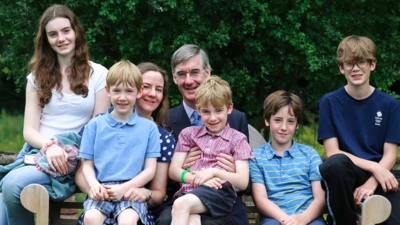We've updated our Privacy and Cookies Policy
We've made some important changes to our Privacy and Cookies Policy and we want you to know what this means for you and your data.
MS patients may sue struck-off doctor Robert Trossel
Top Stories
A doctor struck off by the General Medical Council for exploiting people with multiple sclerosis could be facing legal action by patients.
A firm of solicitors said hundreds of "vulnerable people" who travelled to the Netherlands for treatment may seek compensation.
Dr Robert Trossel treated them at his clinic in Rotterdam, following initial assessments in the UK.
He charged thousands of pounds for unproven stem cell treatments.
The 56-year-old, who trained in the Netherlands, conceded he had been "too enthusiastic" about the treatment.
Top Stories
The GMC found the doctor had breached good medical practice by "exploiting vulnerable patients" and his actions had caused lasting harm.
Jill Paterson, from solicitors Leigh Day & Co, said: "We support the GMC's findings that Dr Trossel is no longer fit to practise in the UK.
"We are actively investigating the pursuit of legal proceedings against him to right the wrongs caused to these vulnerable people."
'False hope'
At an earlier hearing, the GMC Fitness to Practise panel said Dr Trossel had exaggerated the benefits of treatment based on "anecdotal and aspirational information".
Top Stories
His patients, who had an aggressive and disabling type of multiple sclerosis, paid up to £10,000 or more for stem cell injections, with some raising the money through charity events.
However, the stem cells offered were not intended for human use, only for laboratory research.
Tom Kark QC, for the GMC, spoke of the patients' "anger and sense of being let down".
"They were all vulnerable patients who already found themselves failed by the medical profession in this country and as a result were searching, some with desperation, for a cure or relief elsewhere, which is why and how they ended up in Dr Trossel's hands," Mr Kark told the haering.
"They were given false hope by him and the experience not only cost them financially but for the most part it caused them personal and emotional loss when they realised that the treatment provided to them was not only expensive but pointless."
The treatment also contained bovine brain and spinal cord, and the GMC panel ruled he had abused his position as a doctor by failing to warn patients about potential risks of vCJD.
The doctor's own lawyer had told the hearing how patients were informed about the experimental nature of the injections, and that he had stopped using them when the nature of the stem cells became clear following a │╔╚╦┐ý╩Í Newsnight investigation.
He said that the doctor was "compassionate", and had not acted dishonestly.
Despite Dr Trossel's apparent "change of heart", panel chairman Professor Brian Gomes da Costa said he had shown "little insight" into the seriousness of what he had done, and how it might have affected his patients.
Patient fears
The GMC heard that the patients involved had yet to be refunded the thousands of pounds they paid for their treatment.
Karen Galley, 45, from Essex, visited Dr Trossel's clinic in August 2006, and was charged around £10,500 for the treatment, receiving one injection in the arm and six in the neck.
Friends and colleagues of Ms Galley had helped her raise the money, with one running a mini-marathon and another undertaking a sponsored diet.
She said she was "angry and scared" after finding out that the injections contained bovine spinal tissue.
"His QC has described him as a compassionate doctor - but that is rubbish, no compassionate person treats people like that."
She said that she now lived in fear of diseases such as vCJD, for which there is no test or treatment.
She said: "It makes me feel sick that somebody could exploit vulnerable people in this way."
Another MS patient, accountant Malcolm Pear, from Bromsgrove in Worcestershire, visited the Rotterdam clinic in January 2006.
After paying £8,000, the treatment was delivered in a "coffee lounge" rather than a private treatment room.
"I suppose alarm bells should have started ringing then," said his wife Lesley.
She said they were led to believe that the treatment was composed simply of umbilical cells, but found out later that bovine tissue was involved.
After a fleeting improvement, Mr Pear's condition has now deteriorated significantly.
Mrs Pear said: "When you are sitting in front of a neurologist who is saying 'look, there is nothing you can do', you clutch at straws."
"I am not saying we are the most intelligent people on God's Earth, but we certainly are not completely stupid."
After the verdict, Dr Trossel said he was "disappointed".
He added: "I would like to take the opportunity to say how sorry I am for any distress caused to my patients during this time.
"During my career as a doctor, I have always practised with the objective of achieving the very best for my patients."
Top Stories
More to explore
Most read
Content is not available








